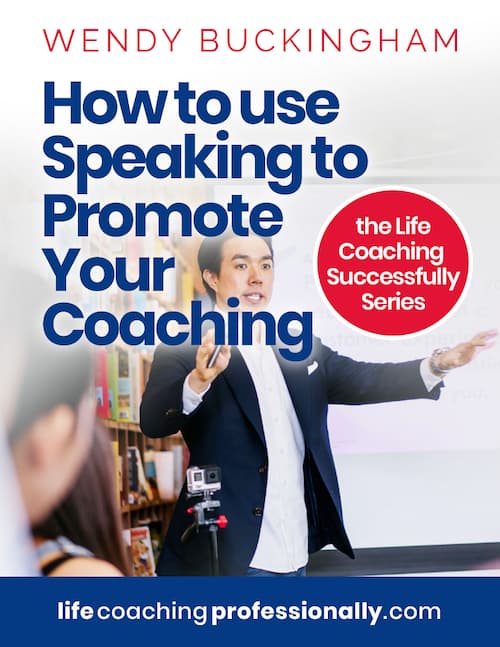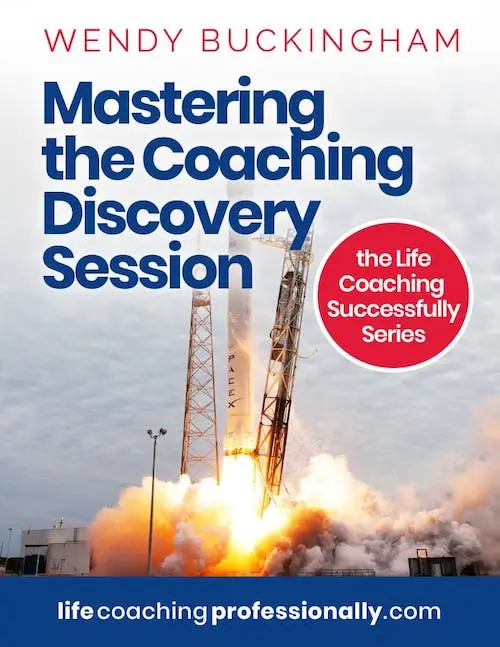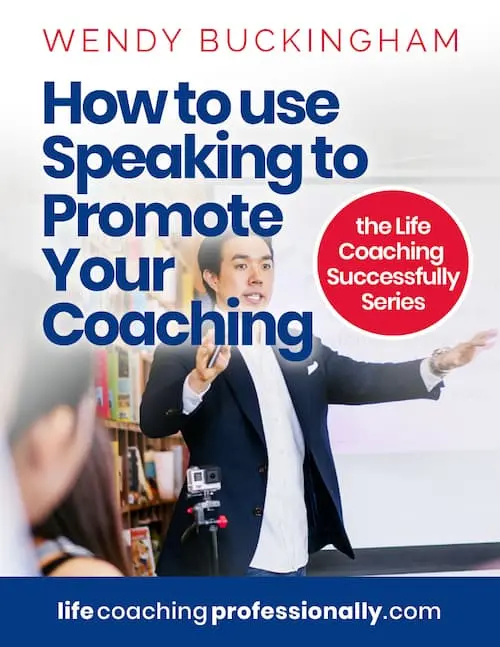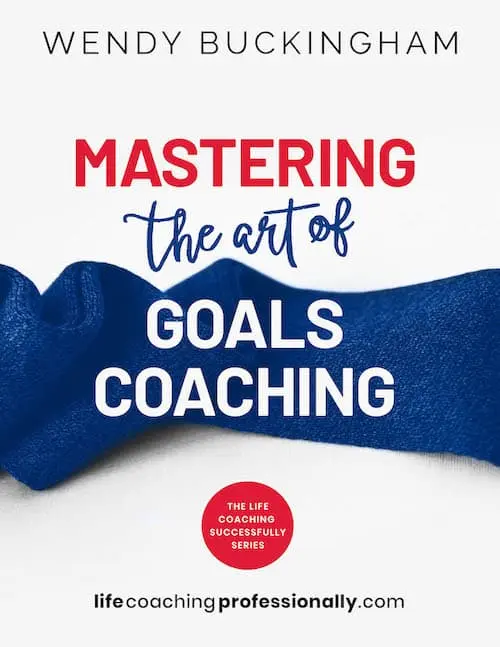- Life Coaching
- Wendy's eBooks
- Guest Speaking
How To Become a Guest Speaker As A Life Coach
On this page you'll find a preview and a taster of the content of my eBook How To Use Speaking to Promote Your Coaching. This useful and comprehensive guide, written from my own experiences, good and learning 😀, will take you through the steps and techniques of becoming a good presenter or guest speaker, in person and online, including how to manage your presentation space.
Quick Links
Why Becoming A Guest Speaker Makes Good Business Sense
Becoming a confident presenter and/or guest speaker, in person or online, can transform the way you are perceived as a coach. Almost from the moment you step onto the physical or online platform, those in the audience will have a more respectful and confident sense of your expertise.
When I first began to coach, I found that being a guest speaker at local business and community networking events added significantly to my credibility. It helped me gain many quality coaching clients with a wide range of personal and business coaching needs.
I was obviously nervous standing up to talk to begin with and afraid I'd get it wrong. But each of the events I spoke at built on my presenting skills. I soon became a confident speaker and online webinar presenter.
I wrote How to Use Speaking to Promote Your Coaching to pass on the benefit of my experience and support you to create an effective, engaging, motivational and trouble-free presentation, both in person and online.
For the price of a coffee and a cake it's crammed full of useful information such as:
- How to get started as a speaker
- Tips for an engaging (never boring) presentation
- How to have a trouble free event and avoid nasty surprises
- Secrets of successful online presentations
"It's bursting with so many good tips in such a small space: I took lots of notes and will be rereading it again soon. I feel much more prepared to use this strategy to promote my coaching after reading this book."
Misty The Life Coach, Atlanta, USA
Why Invest in "How To Use Speaking To Promote Your Coaching"
Following is a summary of the help and encouragement you will get from my book to become a great presenter and motivational guest speaker.
How to get started as a guest speaker
There are numerous opportunities to speak about your coaching speciality or niche. So for starters, here are some of the strategies I cover in the book, in more detail.
Networking:
Networking functions, community groups, in-house business "lunch time" events and conferences and seminars all are on the look out for coaching presentations either in person or online. And for online guest speaking, podcast producers are always looking for new guests. Podmatch is a popular service for speakers looking for guests and visa versa.
Let the world know:
Don't forget to promote the fact that you are a speaker, with an outline of the presentations you give. Use your social media profiles, your website and even your business card. And, if possible, include any testimonials you have from clients that might be relevant to giving a presentations.
Practice wherever you can:
Practice on any audience that will have you, however small! You may not get clients and you almost certainly won't get paid but these occasions are a great opportunity to hone your speaking skills and have "learning experiences" that don't matter too much and help you grow.
Strategies for speaker success
You want your presentation as a guest speaker to be engaging and informative so I share 10 strategies I have used and also include help and encouragement on:
- Overcoming public speaking anxiety - it takes practice but you can do it!
- Avoiding "death by powerpoint"
- The magic of mingling
- Creating a value added handout to be remembered by
- Ways to get a list of attendees so you can post event promote yourself
Plus another five valuable strategies to learn as a new speaker.
6 essentials for a smooth and surprise free event.
Ask any speaker how their presentation went and, in many cases the “glitches” were not caused by their content or delivery, but by peripheral things that went wrong and could have been avoided. Often these glitches are invisible until they occur.
In the How to Use Speaking to Promote Your Coaching I give you a good chunk of low down on:
- Creating your own master checklist
- The importance of checking attendance numbers
- Important checks in the room set up and equipment
- How having a helper can save the day
- Avoiding distractions from your message
Mastering online presentations and avoiding the traps
Speaking to promote your life coaching business is not confined to face to face presentations. Video, Zoom and Skype have opened up a world of opportunity to expand your reach.
Remember, a physical audience won’t usually be rude enough to walk out if they are bored or you are not giving them what they expect. However, all an online audience member has to do is click and you won’t even know you have lost them.
So here are are some online distinctions and techniques that I help you master.
- Distinctions on the online introduction
- Keeping them interested to listen to the end
- Different ways to get details of who is attending
- Looking good online (avoiding the traps)
Finally, I know from personal experience that if you master delivering an inspiring, engaging guest speaker presentation, you will soon be recognised and in demand as an articulate expert. You may even be in demand as a paid presenter for all sorts of occasions.
For the price of a coffee and a cake invest in How to Use Speaking to Promote Your Coaching and you will be well on your way to mastering this proven way of attracting new clients.
More Help to Grow Your Coaching Skills and Promote Yourself
I have written a range of informative books (all from my own 25+ years' experience) that will help you to authentically attract new quality clients, increase your coaching skills and promote your coaching services.
100% Satisfaction or Your Money Back
I am sure you will get real value from each of these books. However, if within 30 days of purchase you are not 100% completely satisfied, you will receive a full 100% refund.





